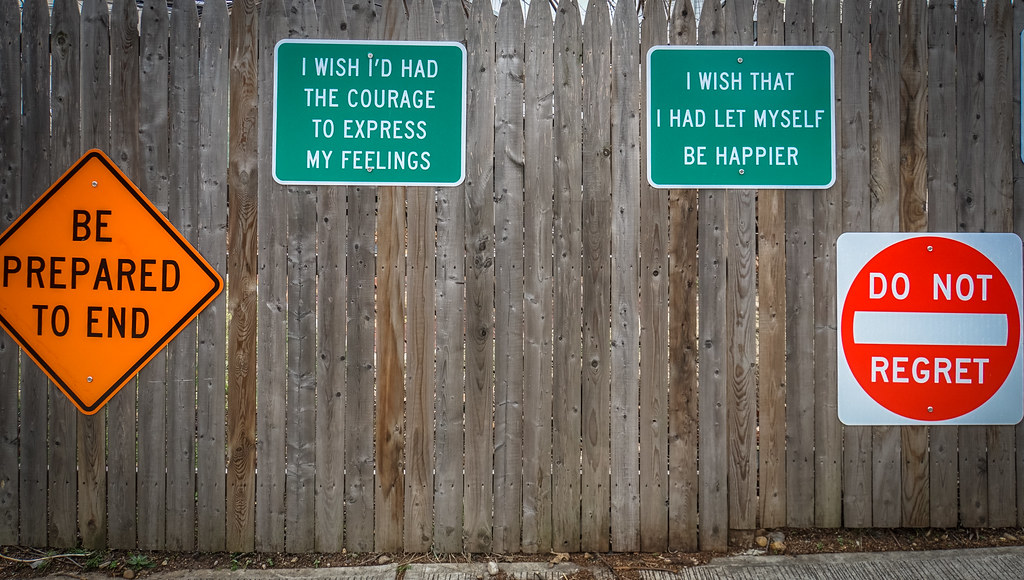I also read this book a little bit ago, another gift from the many recommendations in Tim Ferris’ Tools of Titans: The Tactics, Routines, and Habits of Billionaires, Icons, and World-Class Performers![]() , which I am still working through…(it’s going to require several public library rotations).
, which I am still working through…(it’s going to require several public library rotations).
In a Nutshell
Stumbling on Happiness is very science-laden look at how our brains work, what happiness is (or how it’s perceived), and some useful lessons. It’s a little hard to describe what the advice is; I’d operationalize it as “risks taken aren’t as risky as we think they are, we are more resilient than we think we are, trying to be planful about a future we can’t predict is prone to errors.”
Or maybe in an even crisper nutshell, this song: Jump – Madonna
The most unexpected memories are memorable
Gilbert speaks about people’s recollection of missing trains on their commute. When asked to recall the “worst” such experience, they recall bad experiences. They are less able to remember the less memorable, less-than-worst experiences.
I can relate. I had this experience relatively recently, walking in Washington, DC, and stumbling upon the most prophetic art installation in an alley. Note in the VR view that it’s across from a large cemetery.
I think it’s very relevant here, and I’ll end this post with the photographs – click to see what the signs say. I feel comfortable that I won’t have these regrets. Will you?

The tendency that causes us to overestimate the happiness of Californians also causes us to underestimate the happiness of people with chronic illnesses or disabilities.
Gilbert, Daniel. Stumbling on Happiness (p. 114). Knopf Doubleday Publishing Group. Kindle Edition
(Ed. Comment – I think DC people are pretty happy 🙂 )
As one group of researchers noted, “Resilience is often the most commonly observed outcome trajectory following exposure to a potentially traumatic event.” Indeed, studies of those who survive major traumas suggest that the vast majority do quite well, and that a significant portion claim that their lives were enhanced by the experience.
Gilbert, Daniel. Stumbling on Happiness (p. 167). Knopf Doubleday Publishing Group. Kindle Edition.
Regret is an emotion we feel when we blame ourselves for unfortunate outcomes that might have been prevented had we only behaved differently in the past, and because that emotion is decidedly unpleasant, our behavior in the present is often designed to preclude it.
Gilbert, Daniel. Stumbling on Happiness (p. 196). Knopf Doubleday Publishing Group. Kindle Edition.
Indeed, in the long run, people of every age and in every walk of life seem to regret not having done things much more than they regret things they did,
Gilbert, Daniel. Stumbling on Happiness (p. 197). Knopf Doubleday Publishing Group. Kindle Edition.
We overestimate how happy we will be on our birthdays, we underestimate how happy we will be on Monday mornings, and we make these mundane but erroneous predictions again and again, despite their regular disconfirmation. Our inability to recall how we really felt is one of the reasons why our wealth of experience so often turns out to be a poverty of riches.
Gilbert, Daniel. Stumbling on Happiness (p. 232). Knopf Doubleday Publishing Group. Kindle Edition.

2 Comments
Thanks for this post, Ted. I’ve had this book on my nightstand for months (maybe close to a year), alongside several others. Yes, I’m known for reading multiple books at once which delays getting through any one! But the main reason I haven’t gotten through this one is because I was looking for books that deal with the research on Happiness. I guess I was hoping for something that felt more like “self-help” but it turns out this reads more scientific. But your post gives me encouragement to pick it up and resume reading — clearly I’m in good company:)
Joy, Definitely on the science side, and overall a positive supplement to the search…which really, I find doesn’t require a lot of searching 🙂